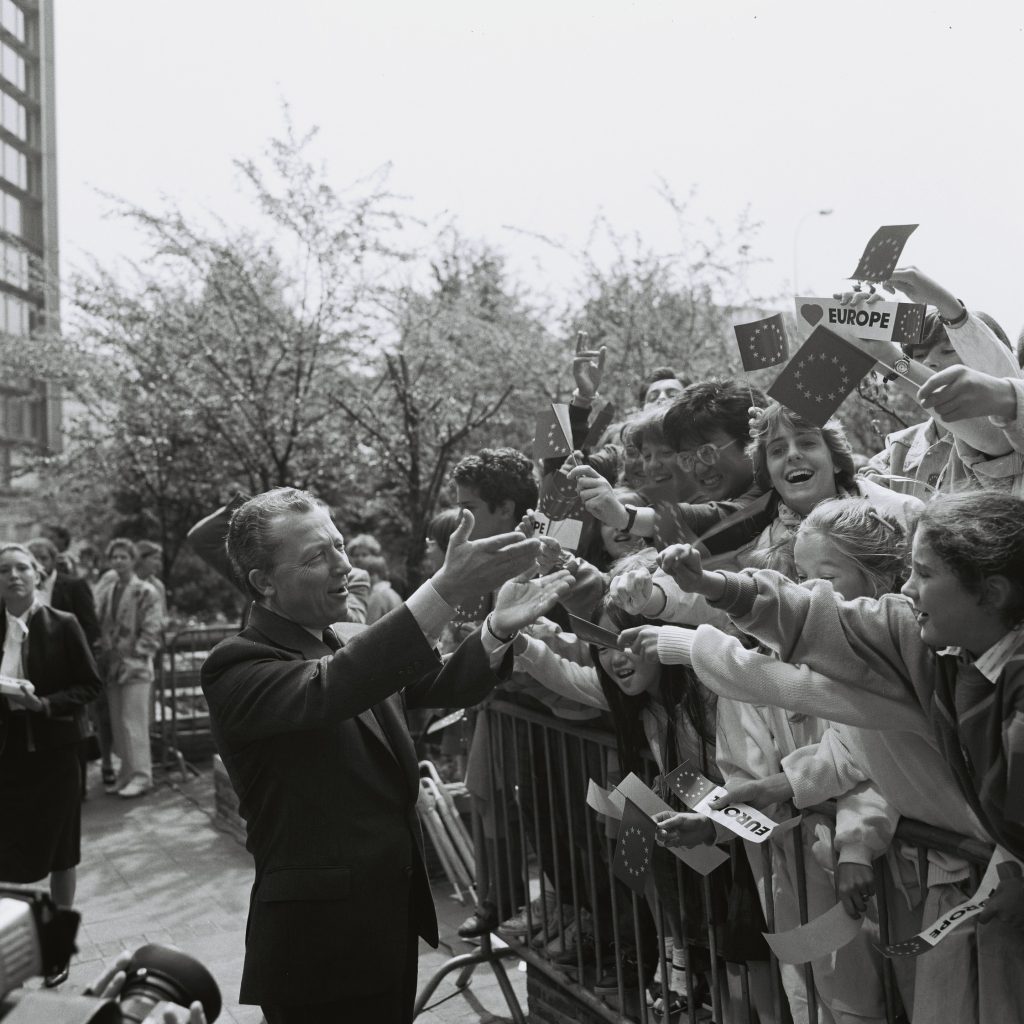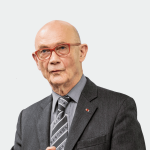Delors, architect of peace
Speech delivered at the European tribute ceremony to Jacques Delors on 31 January 2024 in Brussels

At a time when, on Europe’s doorstep, the sound of bombs and the horror of destruction, suffering and loss of life haunt us once again, I would like to briefly mention a little-known aspect of Jacques Delors. Little-known, and for good reason, because he always wanted to keep it discreet: his involvement in peace processes.
His father, who was maimed in the First World War, had instilled in him the hope of “never again”, as they said at the time, a hope whose disappointment had left an indelible mark on the young man swept up in the debacle of 1939. He abhorred violence.
It was this Delors that I saw at work as a peacemaker on two occasions during his time as head of the Commission. One failed, the other succeeded.
The first was when he attempted, with Shimon Peres, to build a regional water community between Israel, Palestine and their neighbours.
It was a simple idea, inspired by the Coal and Steel Community of the 1950s, which was drafted in secret with the help of a few bright minds, including Avi Primor, who was then Israel’s ambassador to Brussels. Unfortunately, it never saw the light of day.
The second, successful one was in Northern Ireland. Here again, thanks to a network of contacts forged behind the scenes following a visit he made there in 1992, he was able to set up, at the request of the warring parties, a cooperation programme financed by the European budget to accompany the 1994 ceasefire. This programme was adopted by the European Council in Essen at the end of the Delors era. It was a high point, in a way, whose impact is still being felt today, as it is the only programme to have survived Brexit.
Delors embodied, in these moments as in many others, a mixture of ambition and modesty, illustrated by the following anecdote, which I will share with you to end this tribute on a lighter note.
It is early 1985. Delors, newly appointed President of the Commission, visits François Mitterrand at the Élysée Palace. A porch he had crossed a hundred times as an adviser, a courtyard he had crossed a hundred times as a minister. He saw the soldiers of the Republican Guard on the steps, in full dress uniform, presenting the honours reserved by protocol for heads of state or government. He heard the first drum rolls. ‘Oh dear,’ he said to me. “They’re waiting for someone important; come on, let’s go through the back door!”
Thank you all for helping us today to accompany Jacques Delors out through the front door.
Thank you, Madam President of the European Commission, for taking the initiative to pay this tribute, and thank you to your teams for organising and executing it so perfectly.
Thank you for us, thank you for him.




